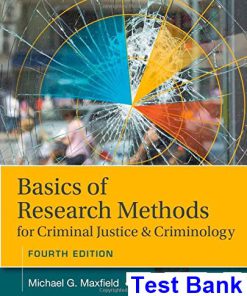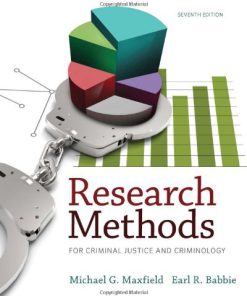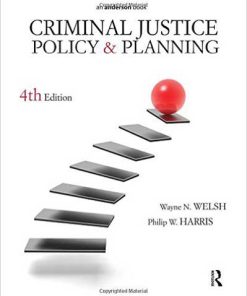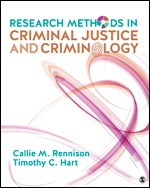Test Bank for Statistical Concepts for Criminal Justice and Criminology : 0135130468
$35.00 Original price was: $35.00.$26.50Current price is: $26.50.
Test Bank for Statistical Concepts for Criminal Justice and Criminology : 0135130468
Instant download Test Bank for Statistical Concepts for Criminal Justice and Criminology pdf docx epub after payment.
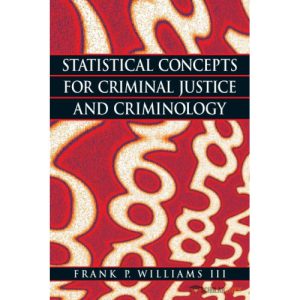
Product details:
- ISBN-10 : 0135130468
- ISBN-13 : 978-0135130469
- Author: Frank P. Williams III
This book is concept-based and focuses on the building blocks of statistical ideas. Covering the essential techniques—univariate tools, Chi-square, t-test, analysis of variance, and Pearson’s r—in a simple conversational style, the text explains the concepts behind each technique and how results are interpreted. Its emphasis is on understanding over mathematical calculations, and its goal is to give students a grasp of the role of variance and error. A chapter on graphical statistics complements the normal quantitative approaches and each technique is set in the context of how it is used to answer research questions.
Table of contents:
Section 1. Foundations of Statistics
I. Introduction to Statistics
II. Levels of Measurement
Section 2. Describing Single Variables
III. Describing Variables: Graphical Statistics
IV. Describing Variables: Measures of Central Tendency
V. Describing Variables: Measures of Dispersion
VI. Describing Variables: Curves and Distributions
VII. Describing Variables: Frequency Distributions
Section 3. Testing for Bivariate Relationships
VIII. Elementary Relationships: Crosstabulation Tables
IX. Hypotheses and Sampling Distributions
X. Statistical Significance
XI. Testing for Significance: The Chi-Square Test
XII. Testing for Significance in Two Groups: The T-Test
XIII. Testing for Significance in Multiple Groups: The Analysis of Variance
Section 4. Determining the Strength of Relationships
XIV. The Concept of Association
XV. Testing for Association: Phi
XVI. Testing for Association: Pearson’s R and Regression
XVII. Doing Real Research: Elementary Multivariate Relationships
People also search:
Statistical Concepts for Criminal Justice and Criminology
Statistical Concepts for Criminal Justice and Criminology pdf
statistical facts about depression
statistical facts about climate change
statistical facts about schizophrenia
You may also like…
Test Bank
Basics of Research Methods for Criminal Justice and Criminology 4th Edition Maxfield Test Bank
Test Bank
Test Bank for Criminal Procedure for the Criminal Justice Professional, 11th Edition : Ferdico
Test Bank
Fundamentals of Research in Criminology and Criminal Justice 4th Edition Bachman Test Bank
Solution Manual
Solution Manual for Statistics for Criminology and Criminal Justice, 3rd Edition, Jacinta M. Gau,





